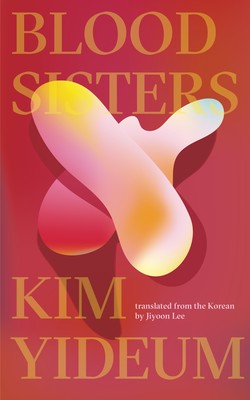Читать книгу Blood Sisters - Kim Yideum - Страница 7
На сайте Литреса книга снята с продажи.
ОглавлениеTranslator’s Note
“You must care a lot about this novel to spend so much time with it,” a new friend who had just learned about my translation project asked me. “What made you choose Blood Sisters for your project?” My answer at the time was something like this: translating this novel was an opportunity to create a productive conversation between two intertwined and porous cultural spheres: America of the late 2010s and Korea of the 1980s. Both spheres speak to struggles with mental health awareness, sexual violence, and hostile political climates. Also, describing and translating the Korean cultural practice of addressing each other by the role one plays (“teacher,” “boss,” “older brother,” and so on) allowed me to meditate on how we as humans seem to encounter one another first through the role we play in each other’s life with its accompanying expectations, and how puncturing the boundaries of those roles (dropping the honorifics and titles, falling in love) can be a precarious and daring act, a site of contact where desire, hatred, and identification take place.
In addition to those answers I’d like to share a personal reason for spending so much time with Blood Sisters. While translating Blood Sisters, I was going through major life events and my mental health was suffering. I witnessed Yeoul the protagonist struggle to navigate a hostile world with no parents, no mentor, and no reference point to give her direction, and I saw how art could become a hypnotizing space of projection where she could trace her own desires. I found myself engaging with the novel in a similar way. I projected my own past experiences—with depression and dissociation and my own negative inner dialogue—onto Yeoul’s, and I experienced an intense identification with her and with a Korea that felt at once familiar and strange.
A few weeks before sending off the final version of the manuscript, while in Korea, I decided to go visit Kim Yideum at her recently opened bookstore-café in Ilsan, Café Yideum. Having lived in the United States for over fifteen years, as regretful as it is to say, Korea has become something of a foreign country to me: I don’t know how to navigate it as I once did, and the food no longer sits as well. After a long, confusing bus ride with multiple transfers, I managed to meet up with Yideum at her Café Yideum, a cozy place brimming with a great selection of books. The posters for the reading series she hosts and a handwritten menu for teas perch on the wall, and a handwritten sign that says BOOK PHARMACY hangs on the doorway. When I asked her what a “book pharmacy” was she explained to me (while preparing some oolong tea) that upon request she “prescribes” a book for her customers after a conversation with them. In a way, I felt like Blood Sisters was the book Yideum Unni* prescribed for me, without either of us realizing. The novel asked me the questions that I needed to be asking myself. I believe there is healing in being asked the right questions and meditating on the answers. Isn’t that the reason why we are drawn to a particular work of art or particular people in the first place? Each encounter allows us to ask ourselves important questions and to search for their answers. On that note, I’m grateful to the books and the people who are close to me in my life. I hope you find in this novel the questions that you need someone to be asking you.
—Jiyoon Lee, April 2019
* Unni is used to address a younger woman or an older sister.
